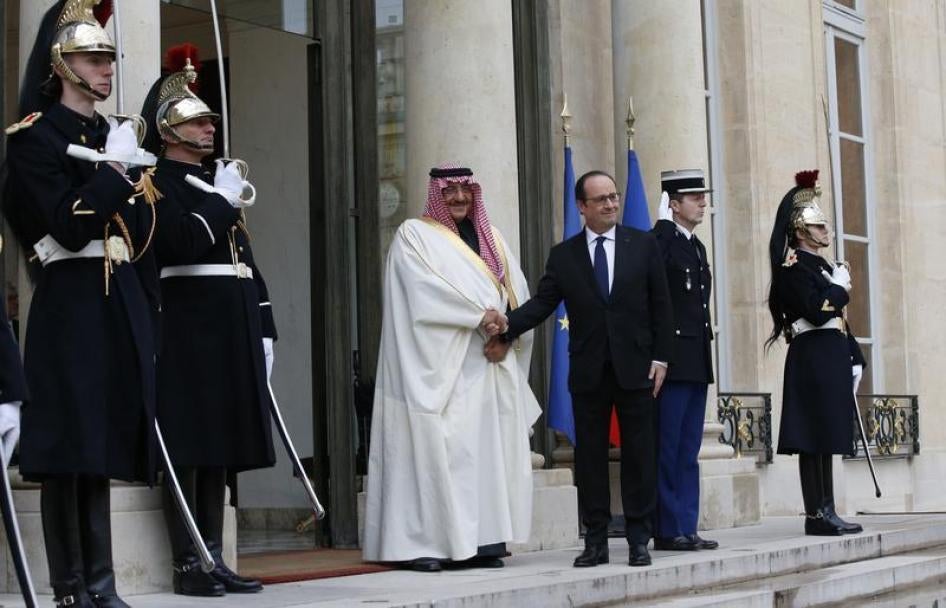On March 4, President Francois Hollande awarded the Legion of Honor, once considered France’s most prestigious award, to Saudi Crown Prince Mohammed bin Nayef for “countering extremism and fighting terrorism,” according to the Saudi Press Agency.
The Legion of Honor is awarded to foreign nationals who support causes defended by France, including human rights, or to foreign officials to foster ongoing diplomatic relations. Cynics might question whether this award was also about economics: In June 2015, France contracted to sell €10.3 billion worth of weapons to Saudi Arabia.
Bin Nayef, appointed crown prince last April, has been interior minister since 2012. Previously, he led Saudi Arabia’s campaign against Al Qaeda and, over the past decade, has won praise for counterterrorism cooperation with Western countries.
But there is another side to the counterterror campaign he leads: large-scale arbitrary detention, mistreatment of prisoners, and sweeping provisions in his Interior Ministry’s counterterror regulations that authorities can use to criminalize virtually any expression critical of the government. In 2016, Saudi Arabia began the year with the mass execution of 47 men, purportedly in the name of security.
Saudi Arabia’s counterterrorism efforts have directly targeted human rights activists, sometimes forcibly enrolling them in “thought rehabilitation” programs designed for terrorism suspects. Peaceful activists have been arrested, interrogated, and tried at Saudi Arabia’s terrorism tribunal on speech-related charges like “harming the reputation of the Kingdom.”
Two of Saudi Arabia’s most prominent activists, Abdullah al-Hamid and Mohammed al-Qahtani, mark their third year in prison today. They were sentenced to 11- and 10-year prison terms, respectively, based solely on their peaceful activism.
Bestowing the prize on officials implicated in human rights violations is nothing new; France has previously granted the award to such infamous figures as Panama’s Manuel Noriega.
But, France and Saudi Arabia are founding members of the Global Counterterrorism Forum, which declared at its inception in 2011 that respecting human rights and the rule of law is “an essential part of a successful counterterrorism effort.” By honoring a Saudi official whose ministry has been responsible for grave abuses, France is neither fulfilling its own promises to protect human rights when countering terror nor helping push counterterror partners to comply with human rights norms. If France is serious about its promises, it should insist on the immediate release of peaceful dissidents like al-Qahtani and al-Hamid, instead of rewarding the head of the ministry responsible for their detention.









